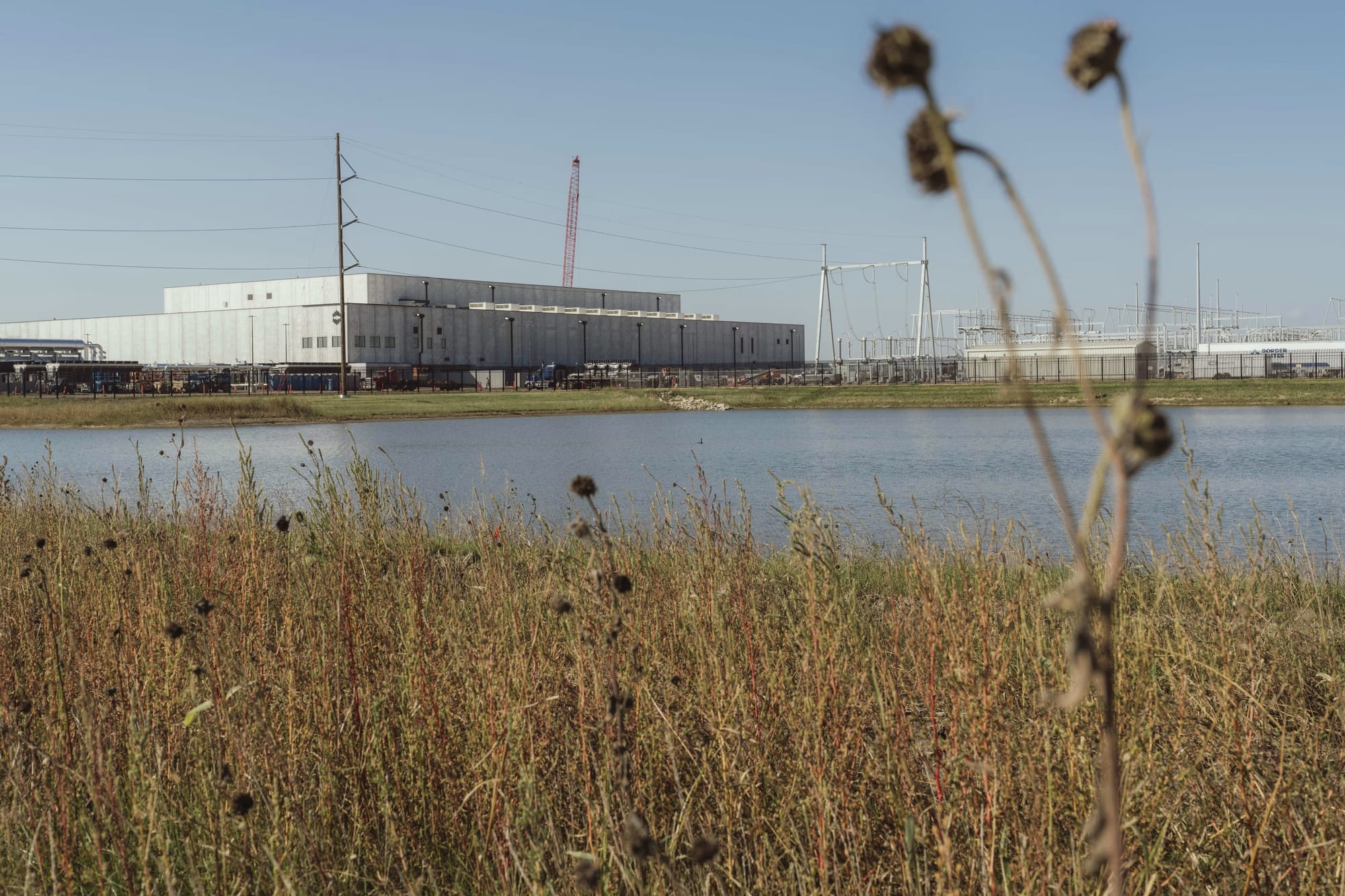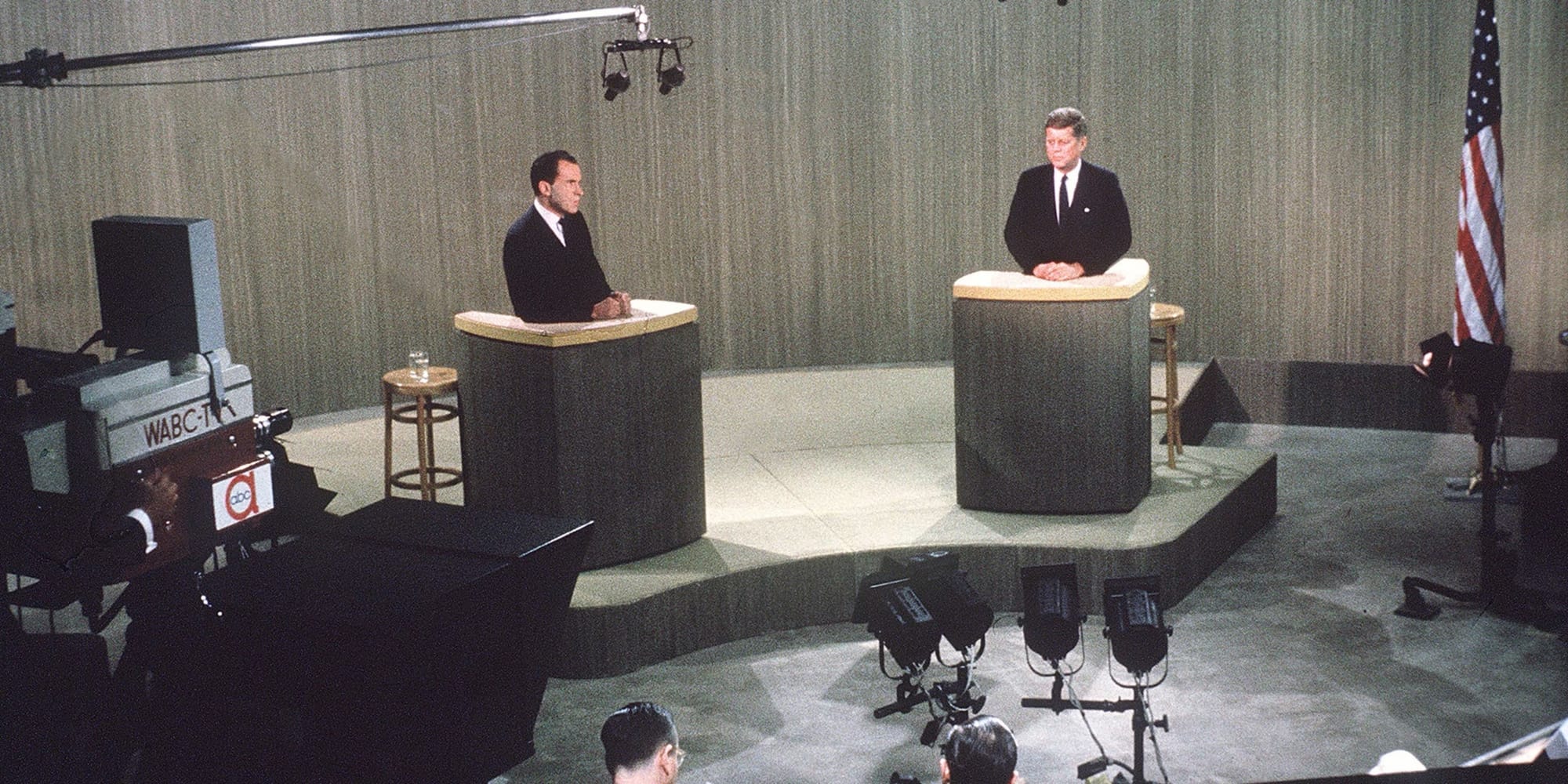Top 5 US news stories
September 26 2025

Echoes of Dot-Com Bust: AI's Multi-Trillion Dollar Building Spree Faces Profitability Questions
Trump Announces 100% Tariff on Branded Drugs From Companies Not Building in US
Former FBI Director James Comey Indicted for False Statements and Obstruction
Amazon to Pay $2.5 Billion in FTC Settlement Over Deceptive Prime Tactics
Chinese Experts Aiding Sanctioned Russian Arms Maker in Military Drone Development
Newsletter sponsor

1. Echoes of Dot-Com Bust: AI's Multi-Trillion Dollar Building Spree Faces Profitability Questions
The windswept town of Ellendale, N.D., population 1,100, has two motels, a Dollar General, a Pentecostal Bible college—and a half-built AI factory bigger than 10 Home Depots. Its more than $15 billion price tag is equivalent to a quarter of the state’s annual economic output. The artificial-intelligence boom has ushered in one of the costliest building sprees in world history. Over the past three years, leading tech firms have committed more toward AI data centers like the one in Ellendale, plus chips and energy, than it cost to build the interstate highway system over four decades, when adjusted for inflation. AI proponents liken the effort to the Industrial Revolution. A big problem: No one is sure how they will get their investment back—or when.
The building rush is effectively a mega-speculative bet that the technology will rapidly improve, transform the economy and start producing steady profits. “I hope we don’t take 50 years,” Microsoft CEO Satya Nadella said at a May conference with Meta CEO Mark Zuckerberg, referring to the initially slow adoption of electricity. “Yeah, well, we’re all investing as if it’s not going to take 50 years,” replied Zuckerberg, who surmised at a recent White House dinner the company’s U.S. spending through 2028 was “probably going to be something like” $600 billion. Silicon Valley watchers worry that enthusiasm for AI has turned into a bubble that has increasingly loud echoes of the mania around the internet’s infrastructure build-out in the late 1990s. Then, telecom companies spent over $100 billion blanketing the country with fiber optic cables on the belief that the internet’s growth would be so explosive, most any investment was justified. The result was a massive overbuilding that made telecom the hardest hit sector in the dot-com bust. Industry giants toppled like dominoes, including Global Crossing, WorldCom and 360Networks.
Today, the typically dull world of chips and data centers has become a raging multihundred billion dollar battleground where Silicon Valley giants one up each other with spending commitments—and sci-fi names. Zuckerberg teased his planned “Hyperion” mega-data center with a social-media post showing it would be the size of a large chunk of Manhattan. OpenAI’s Sam Altman calls his data-center effort “Stargate,” a reference to the 1994 movie about an interstellar time-travel portal. Company executives this week laid out plans that would require at least $1 trillion in data-center investment, and Altman recently committed the company to pay Oracle an average of around $60 billion a year for servers in data centers in coming years. Yet OpenAI is on track to take in just $13 billion in revenue from all its paying customers this year.
Six years ago, CoreWeave, the company leasing the North Dakota facility, was an obscure cryptocurrency miner with fewer than two dozen employees. Flooded with money from Wall Street and private-equity investors, it has metamorphosed into a computing goliath with a market value bigger than General Motors or Target. Today’s numbers are far larger than the dot-com bubble, implying a massive shift in the economy would be needed to make these investments worthwhile. David Cahn, a partner at venture-capital firm Sequoia, estimates that the money invested in AI infrastructure in 2023 and 2024 alone requires consumers and companies to buy roughly $800 billion in AI products over the life of these chips and data centers to produce a good investment return. Analysts believe most AI processors have a useful life of between three and five years. This week, consultants at Bain & Co. estimated the wave of AI infrastructure spending will require $2 trillion in annual AI revenue by 2030. By comparison, that is more than the combined 2024 revenue of Amazon, Apple, Alphabet, Microsoft, Meta and Nvidia, and more than five times the size of the entire global subscription software market.
WSJ
2. Trump Announces 100% Tariff on Branded Drugs From Companies Not Building in US
WASHINGTON—President Trump announced many new tariffs Thursday, including a large one on drugs from pharmaceutical companies that aren’t building plants in the U.S. “Starting October 1st, 2025, we will be imposing a 100% Tariff on any branded or patented Pharmaceutical Product, unless a Company IS BUILDING their Pharmaceutical Manufacturing Plant in America,” Trump posted on his social-media site, Truth Social, without providing details. Many of the largest pharmaceutical companies have announced new construction in the U.S. in recent months including Eli Lilly, AstraZeneca, Roche Holding and GSK. So far this year, more than a dozen drugmakers have pledged to spend more than $350 billion collectively by the end of this decade on manufacturing, research and development, and other functions in the U.S., The Wall Street Journal has reported. Roughly nine out of 10 prescriptions in the U.S. are filled with generic drugs, which wouldn’t be affected by a tariff on “branded or patented” products, as Trump outlined.
WSJ
3. Former FBI Director James Comey Indicted for False Statements and Obstruction
ALEXANDRIA, Va.—A federal grand jury in Virginia indicted former FBI director James Comey on Thursday on charges of making false statements and obstruction, days after President Trump demanded the prosecution and ousted the U.S. attorney who determined there was insufficient evidence to bring the case. Comey had been under investigation for what prosecutors said were lies he told in 2020 congressional testimony during a hearing about the bureau’s earlier investigation of the Trump campaign’s ties to Russia in the 2016 election. Prosecutors had raced to obtain the indictment, as the statute of limitations on such a case was due to run out next week.
WSJ
4. Amazon to Pay $2.5 Billion in FTC Settlement Over Deceptive Prime Tactics
E-commerce giant Amazon agreed Thursday to pay $1.5 billion in refunds to customers of its Prime subscription as part of a larger settlement with the Federal Trade Commission over allegations it tricked people into signing up for the free shipping service and made it difficult to cancel. The refunds are in addition to a $1 billion fine Amazon will pay the government, for a total settlement of $2.5 billion, one of the largest in U.S. history. The settlement requires Amazon to automatically refund $51 to anyone who signed up for Prime through a deceptive sign-up process and only used the service three times in a 12-month period. The company will also have to send a form to people who used the service more to give them a chance to apply for a refund, too.
WaPo
5. Chinese Experts Aiding Sanctioned Russian Arms Maker in Military Drone Development
Sept 25 (Reuters) - Chinese drone experts have flown to Russia to conduct technical development work on military drones at a state-owned weapons manufacturer that is under Western sanctions, according to two European security officials and documents seen by Reuters. The Chinese experts have visited arms maker IEMZ Kupol on more than half a dozen occasions since the second quarter of last year. During that time, Kupol also received shipments of Chinese-made attack and surveillance drones via a Russian intermediary, according to the documents and two officials. The officials, who asked that neither they nor their organisation be identified due to the sensitivity of the information, said the collaboration suggested a deepening relationship between Kupol and Chinese companies in developing drones - which have proven to be critically important to Russia's war in Ukraine.
Reuters
September 26 1960: Kennedy and Nixon square off in first televised presidential debate
The first televised presidential debate between John F. Kennedy and Richard Nixon on September 26, 1960, revealed the transformative power of television in American politics through a striking split in audience perception. Television viewers, who comprised the majority of the estimated 70 million Americans who experienced the debate, generally believed Kennedy had won decisively—he appeared tan, rested, confident, and presidential, while Nixon looked pale, tired, and uncomfortable under the hot studio lights, with visible perspiration and a five o'clock shadow that made him appear haggard. In stark contrast, radio listeners, who judged the candidates purely on their words and vocal delivery, often felt that Nixon had performed better, finding his arguments more substantive and his responses more detailed and policy-focused. This dramatic difference in perception based on medium highlighted how television would fundamentally change political campaigns, emphasizing the importance of visual presentation, charisma, and image management alongside traditional rhetorical skills, ultimately contributing to Kennedy's narrow victory in November and ushering in the era of telegenic politics.

We are temporarily pausing our podcasts as we revamp our app so any article can be read as audio
Found a mistake? Have a news tip or feedback to share? Contact our newsroom using the button below:
citizen journal offers three flagship products: a daily national news summary, a daily Kansas news summary, and local news and school board summaries from 23 cities across 5 states. Use the links in the header to navigate to national, kansas, and local coverage. Subscribe to each, some, or all to get an email when new issues are published for FREE!
Sponsors (click me!)





Sources
- https://www.wsj.com/tech/ai/ai-bubble-building-spree-55ee6128?mod=hp_lead_pos7
- https://www.wsj.com/economy/trade/trump-to-slap-new-tariffs-on-pharma-big-trucks-ab37416e?mod=hp_lead_pos2
- https://www.wsj.com/us-news/law/james-comey-indicted-on-false-statement-charges-2c896df2?st=4C1ZSh&reflink=article_copyURL_share
- https://www.washingtonpost.com/technology/2025/09/25/amazon-refund-billion-prime-ftc/
- https://www.reuters.com/business/aerospace-defense/chinese-drone-experts-worked-with-sanctioned-russian-arms-maker-sources-say-2025-09-25/

